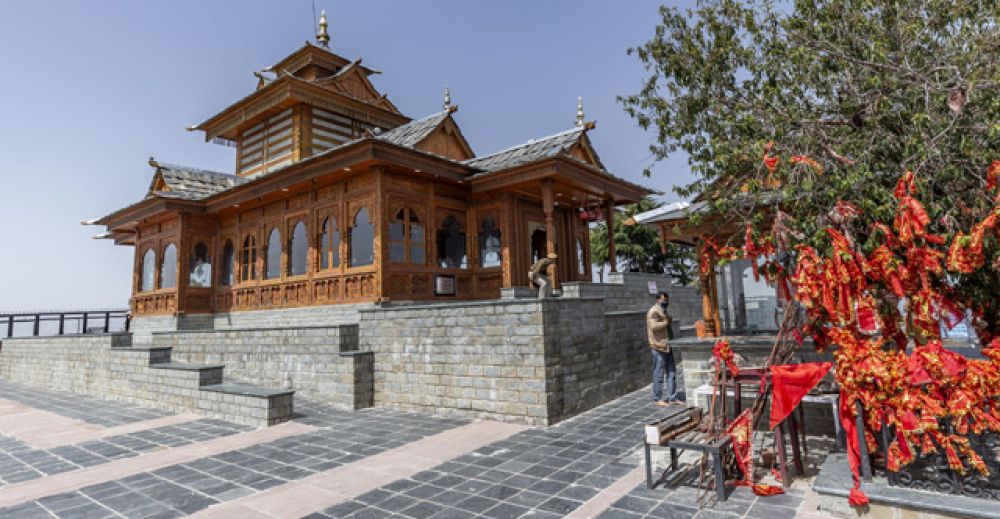

Nestled in the picturesque setting of Shimla, the Tara Devi Temple has been an integral part of the region's spiritual landscape. Shimla, often referred to as the 'Queen of Hills', has been a beloved destination for tourists since the British colonial era, particularly for its pleasant climate and scenic beauty. The history of tourism in Shimla can be traced back to the 1820s when it began to gain popularity as a summer retreat for British officials seeking escape from the scorching heat of the Indian plains.
The establishment of the railway line in 1903, connecting Kalka with Shimla, was a significant development that tremendously increased the accessibility of the hill station and boosted tourism. As tourists began to flock to Shimla, the Tara Devi Temple, dedicated to Goddess Tara (a goddess in Hinduism), also came into the limelight. The temple, dating back about 250 years, is situated atop a hill, offering panoramic views of the surrounding mountains and the sprawling valleys below.
With the rise of tourism, the Tara Devi Temple became a must-visit destination for those looking to combine the serene experience of nature with spiritual rejuvenation. The temple traditionally attracted worshippers and spiritual seekers, but it has also become popular among trekkers and nature enthusiasts who visit for both the religious significance and the trekking route leading up to it. The mix of spirituality, adventure, and nature has been the hallmark of this temple's contribution to the tourism of Shimla.
In recent years, there has been a shift in tourism trends with travelers seeking more than just sightseeing experiences. Visitors to Shimla and the Tara Devi Temple are increasingly looking for ecotourism and sustainable travel options, such as engaging in environment-friendly activities and respecting the sanctity of the site.
The concept of 'spiritual tourism' has picked up pace, where tourists couple their visit to natural wonders with a quest for inner peace and spiritual learning, and Tara Devi Temple serves as a prime example of such a destination. Additionally, health and wellness tourism has seen an uptick, with Shimla's unpolluted air and tranquil surroundings being a major draw for health-conscious visitors.
The temple authorities, along with local tourism boards, have made concerted efforts to improve the infrastructure to enhance visitor experience while consciously trying to minimize the environmental impact due to increased footfall. Enhanced amenities for pilgrims and trekkers, guided tours focusing on the temple's history, and the creation of areas for meditation and retreats have become part of the visitor services.
Given the global health scenario, safety and hygiene have also taken center stage, with the destination ensuring that cleanliness and COVID-19 protocols are strictly followed to ensure the health and safety of both pilgrims and tourists.
With these developments, Tara Devi Temple continues to thrive as a fusion of historical, spiritual, and natural beauty, advocating for a travel experience that is enriching, responsible, and in harmony with its sacred atmosphere and the ecological balance of Shimla.